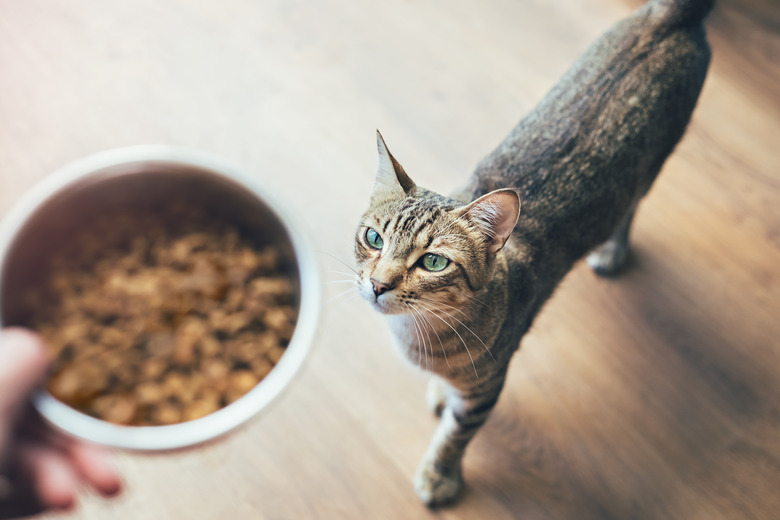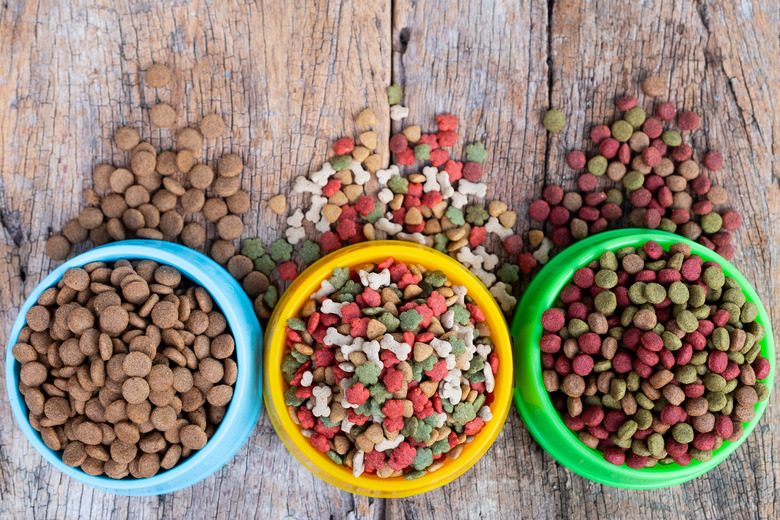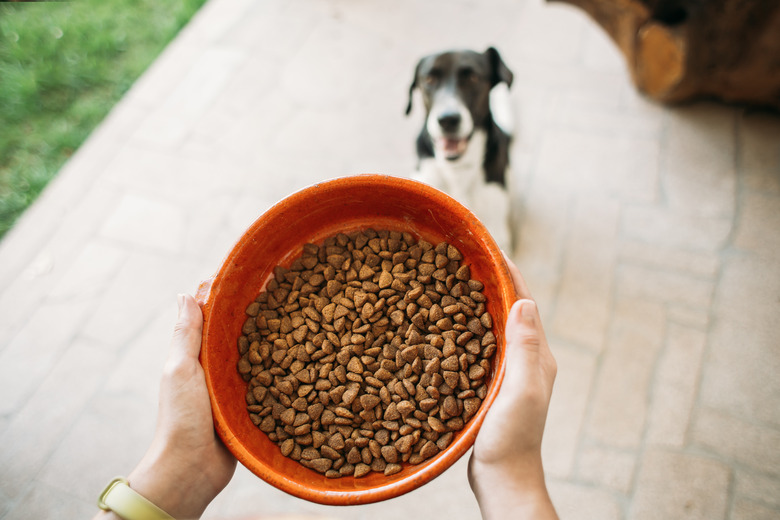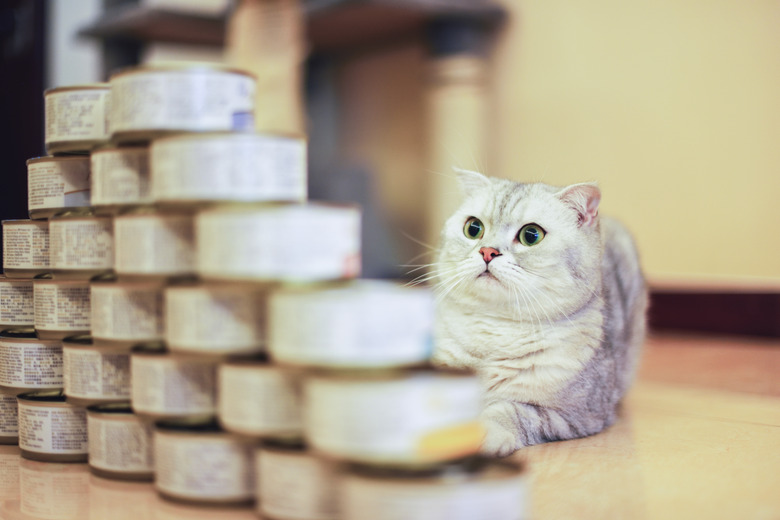Why Can't People Eat Pet Food? Or Can They?
The way we feed our pets has changed a great deal in the last decade alone. With a recent rise in pet food trends like home-cooked meals, raw diets, and grain-free options, it's become commonplace to see products labeled as "human-grade." You may have wondered if some of these pet foods were indeed safe for human consumption while scanning the ingredient lists. What's the verdict: can people eat pet food?
Pet food ingredients
Pet food ingredients
While some pet foods do contain ingredients that are safe for both humans and animals (like meat and vegetables) pet foods are formulated specifically for animals, who have different nutritional needs than us.
Dog food and cat food both typically contain animal byproducts, grains, vitamins, and minerals. Animal by-products can consist of meat scraps, organs, skin, and ground bones that are deemed "unfit for human consumption." In the United States, these byproducts are not usually found in supermarkets or on menus but aren't necessarily dangerous to eat as long as they have been processed, cooked, and stored properly.
Food regulations
Food regulations
When it comes to the regulation of these ingredients, things get a bit complicated. The United States Food and Drug Administration (FDA) establishes standards for labeling pet food by ensuring accurate product identification, net quantity statement, manufacturer's name and address, and listing of ingredients. The FDA partners with the Association of American Feed Control Officials (AAFCO) to provide state-specific regulations that protect the health of animals and humans, as well as ensuring consumer protections. The FDA Food Safety Modernization Act (FSMA) of 2011 also established stricter food safety regulations for animal food processing facilities. However, animal food manufacturers are not held to the same standards and regulations as human food companies.
Is it dangerous for people to eat pet food?
Is it dangerous for people to eat pet food?
Though pet food contains ingredients generally regarded as safe for people, other components make it less than appealing as potential human food. Some varieties of dog food (and dog treats) contain a synthetic form of vitamin K known as vitamin K3 or menadione. Vitamin K plays a role in blood and bone health in both humans and animals, but while dogs' bodies are able to convert vitamin K3 to an active, usable form of vitamin K, humans' bodies do not process it in the same way. High levels of vitamin K3 in people can lead to liver damage and the destruction of red blood cells.
Cat food is also designed specifically for feline nutritional needs and can cause negative side effects if eaten by humans. Vitamin A and taurine both feature prominently in cat food as they are an essential part of a cat's diet. Though people also need these nutrients, the levels found in cat food far exceed human daily nutritional requirements and can cause nausea, vomiting, headaches, and blurred eyesight.
What happens if I eat pet food?
What happens if I eat pet food?
Pet food isn't going to cause any major adverse side effects if consumed in a small amount on a single occasion. Maybe you absent-mindedly took a bite of something laying on the counter without looking and realized a little too late it was a dog treat. Perhaps you cracked open a fancy new brand of wet cat food and wondered – "what does this taste like?" As long as you aren't allergic to any of the listed ingredients, a little nibble of pet food won't harm you if consumed accidentally (or out of curiosity!) — though you might expect a bit of an upset stomach depending on how big a bite you take. However, you don't want to make a habit of pouring a bowl for yourself.
Some people want to know how safe pet food is to eat in case of an emergency. If your only source of calories was cat or dog food, would you be able to survive on it? Technically, if there truly was no other food source available, eating pet food for a day or two is not dangerous in the long term. That said, it isn't advisable to stock up on extra pet food to stash away for yourself in a hypothetical emergency. If you're building an emergency kit, be sure to include separate food and supplies for yourself and your pet. Grab an extra bag of kibble for your pet, and shelf-stable human food for yourself. It might make for a funny story one day, but you probably won't be thrilled about the actual experience of surviving on dog food.
The bottom line
The bottom line
If you've eaten pet food by accident or sampled a bite out of curiosity, you needn't worry about any harm to your health. But when it comes to regular meals and snacks, it's best to leave pet food in the paws of the ones we serve it to.




